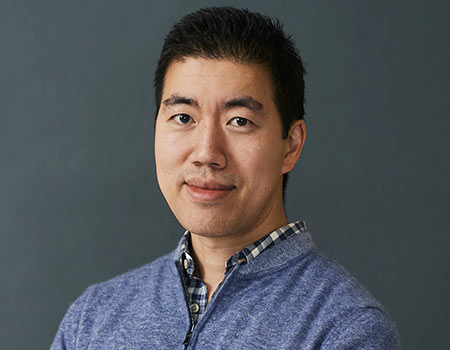As gene-editing moves mainstream, a pioneer in the field is testing whether it could prevent Alzheimer's
By Allison DeAngelis,
Insider
| 11. 22. 2021
Photo from Beam Therapeutics
David Liu is best known as one of the pioneers of the experimental science of editing people's genes.
Liu's laboratory at the Broad Institute of MIT and Harvard was the birthplace of two new types of gene-editing called base and prime editing, that swap out segments of the DNA strand without cutting into it. He and other experts estimate could be more precise and have less unintended effects than other forms of gene-editing like CRISPR.
What's less known is that for the last five years, his laboratory has been quietly testing a method of potentially protecting people against one of the most devastating health conditions worldwide: Alzheimer's disease.
One of the lab's first tests of this science is to see if it can be used to install a gene called APOE2 that is believed to significantly reduce the risk of a person getting Alzheimer's. The work is still in the very early stages, Liu told Insider. His team has published multiple papers indicating that they can make these changes in cell samples and is currently...
Related Articles
By Scott Solomon, The MIT Press Reader | 02.12.2026
Chris Mason is a man in a hurry.
“Sometimes walking from the subway to the lab takes too long, so I’ll start running,” he told me over breakfast at a bistro near his home in Brooklyn on a crisp...
By Diaa Hadid and Shweta Desai, NPR | 01.29.2026
MUMBRA, India — The afternoon sun shines on the woman in a commuter-town café, highlighting her almond-shaped eyes and pale skin, a look often sought after by couples who need an egg to have a baby.
"I have good eggs,"...
By George Janes, BioNews | 01.12.2026
A heart attack patient has become the first person to be treated in a clinical trial of an experimental gene therapy, which aims to strengthen blood vessels after coronary bypass surgery.
Coronary artery bypass surgery is performed to treat...
By Staff, ScienceDaily | 01.05.2026
Scientists at UNSW Sydney have developed a new form of CRISPR technology that could make gene therapy safer while also resolving a decades-long debate about how genes are switched off. The research shows that small chemical markers attached to DNA
...




